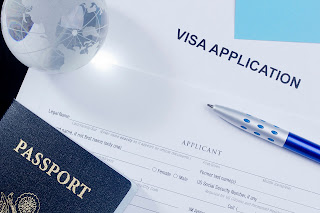The United States Congress created the EB-5 Immigrant Investor Program in 1990 to stimulate economic growth by encouraging foreign investment. There are strict eligibility requirements that an immigrant entrepreneur must meet in order to obtain an EB-5 visa.
There is a myriad of misconceptions about the EB-5 visa program, and a small mistake could lead to a denial of your application by U.S. Citizenship and Immigration Services. Charles Kuck is an employment visa immigration attorney in Atlanta who can answer your questions about the EB-5 Immigrant Investor Program and determine if you meet the eligibility requirements.
Charles Kuck is the past National President of the American Immigration Lawyers Association (AILA) and the past President of the Alliance of Business Immigration Lawyers (ABIL). Call 404-816-8611 to schedule a consultation with Kuck Immigration Partners.
Let’s take a look at three common misconceptions about the EB-5 Immigrant Investor Program:
Misconception 1: “I received an EB-5 visa, which guarantees that I will become a lawful permanent resident.”
After you obtain an EB-5 visa, you will only have conditional permanent residency in the United States. However, you must fulfill all the requirements of the EB-5 Immigrant Investor Program in order to become a lawful permanent resident.
You will then have to submit a Form I-829, Petition by Entrepreneur to Remove Conditions on Permanent Resident Status. However, if USCIS denies your Form I-829, then you will not become a lawful permanent resident, and your family will face deportation.
Fortunately, there are several ways to fight a denial of Form I-829 in immigration court. If you are in this situation, contact Kuck Immigration Partners as soon as possible.
Misconception 2: “The U.S. government does not perform background checks on EB-5 investors.”
The U.S. government performs comprehensive background checks an all EB-5 investors. Several government agencies, including the Department of State, the Department of Homeland Security, and USCIS, will investigate your background, the source of your investment capital, and the potential for your investment to fulfill the requirements of the EB-5 Immigration Investor Program.
Misconception 3: “I do not have $1 million USD, so I cannot qualify for an EB-5 visa.”
In order to obtain an EB-5 visa, you will have to meet the minimum capital investment requirement. Although the general requirement is a $1 million capital investment, a $500,000 investment may qualify if it is made in a Targeted Employment Area.
A Targeted Employment Area is either a rural area or a high unemployment area. A rural area is a region outside a metropolitan area as defined by the Office of Management and Budget, or outside the boundary of a town or city with a population of 20,000 or more according to the decennial census. A high unemployment area is a region that is experiencing an unemployment rate of at least 150 percent the national average rate.
If you have questions about the EB-5 visa program or if USCIS denied your Form I-829, contact Kuck Immigration Partners. Charles Kuck is an employment visa lawyer in Atlanta who will demystify U.S. immigration laws and compassionately represent your interests. Call 404-816-8611 today to schedule a consultation.
There is a myriad of misconceptions about the EB-5 visa program, and a small mistake could lead to a denial of your application by U.S. Citizenship and Immigration Services. Charles Kuck is an employment visa immigration attorney in Atlanta who can answer your questions about the EB-5 Immigrant Investor Program and determine if you meet the eligibility requirements.
Charles Kuck is the past National President of the American Immigration Lawyers Association (AILA) and the past President of the Alliance of Business Immigration Lawyers (ABIL). Call 404-816-8611 to schedule a consultation with Kuck Immigration Partners.
Let’s take a look at three common misconceptions about the EB-5 Immigrant Investor Program:
Misconception 1: “I received an EB-5 visa, which guarantees that I will become a lawful permanent resident.”
After you obtain an EB-5 visa, you will only have conditional permanent residency in the United States. However, you must fulfill all the requirements of the EB-5 Immigrant Investor Program in order to become a lawful permanent resident.
You will then have to submit a Form I-829, Petition by Entrepreneur to Remove Conditions on Permanent Resident Status. However, if USCIS denies your Form I-829, then you will not become a lawful permanent resident, and your family will face deportation.
Fortunately, there are several ways to fight a denial of Form I-829 in immigration court. If you are in this situation, contact Kuck Immigration Partners as soon as possible.
Misconception 2: “The U.S. government does not perform background checks on EB-5 investors.”
The U.S. government performs comprehensive background checks an all EB-5 investors. Several government agencies, including the Department of State, the Department of Homeland Security, and USCIS, will investigate your background, the source of your investment capital, and the potential for your investment to fulfill the requirements of the EB-5 Immigration Investor Program.
Misconception 3: “I do not have $1 million USD, so I cannot qualify for an EB-5 visa.”
In order to obtain an EB-5 visa, you will have to meet the minimum capital investment requirement. Although the general requirement is a $1 million capital investment, a $500,000 investment may qualify if it is made in a Targeted Employment Area.
A Targeted Employment Area is either a rural area or a high unemployment area. A rural area is a region outside a metropolitan area as defined by the Office of Management and Budget, or outside the boundary of a town or city with a population of 20,000 or more according to the decennial census. A high unemployment area is a region that is experiencing an unemployment rate of at least 150 percent the national average rate.
If you have questions about the EB-5 visa program or if USCIS denied your Form I-829, contact Kuck Immigration Partners. Charles Kuck is an employment visa lawyer in Atlanta who will demystify U.S. immigration laws and compassionately represent your interests. Call 404-816-8611 today to schedule a consultation.

Comments
Post a Comment